Washington Melodrama

Brief Synopsis
Cast & Crew
S. Sylvan Simon
Frank Morgan
Ann Rutherford
Kent Taylor
Dan Dailey Jr.
Lee Bowman
Film Details
Technical Specs

Synopsis
Washington industrialist Calvin Claymore leads a group that supports a Senate bill to send aide to war-torn Europe, but is opposed by isolationist Hal Thorne, whose Daily Tabloid newspaper and radio broadcast lobbies against the group. Because his wife and daughter Laurie, who is engaged to Hal, have been vacationing in South America for some time, the lonely Calvin agrees to accompany his friend, Senator Morton, to the Marigold Club. Calvin is too preoccupied to enjoy himself, even when he "hooks" entertainer Mary Morgan during a water ballet "fishing" act, but because Mary has been told by emcee Whitney King to get friendly with Calvin, she convinces him to take her home. She is impressed by his kind and gentlemanly demeanor, and when he asks to see her again, she agrees. For the next few weeks he escorts her to the sights of Washington, and the two develop such a close friendship that when Mrs. Calvin cables that she is returning, he is disappointed. Calvin then goes to Mary's apartment to say goodbye and tell her how much her companionship has meant to him. After he leaves, she finds an envelope containing a note and a large amount of cash. While she is writing a letter to return the money, King, who has been waiting outside, arrives and demands the money, but she tells him she sent it back. In a scuffle, King strikes her, causing her to die when she falls and hits her head. He then steals the money and note and leaves. After her murder is discovered, Logan, one of Hal's columnists, learns that an older man spent time with Mary, and Hal determines to find him. He then tells reporter Ronnie Colton to rent Mary's apartment and investigate. On the night that Mrs. Claymore and Laurie return, the butler tells Calvin that one of his gloves is missing, and concerned that it may be in Mary's apartment, Calvin burns the mate in the fireplace. As Laurie enters his study she smells the burning glove, but is too concerned with asking for her father's blessing on her marriage to Hal to notice. He reluctantly agrees, but when Hal shows him the evening edition of the Tab picturing Calvin and himself shaking hands, and already announcing the engagement, Calvin is angry because he fears his friends might think that he has changed his views. The next day, King goes to Calvin with a copy of the letter. He then coerces Calvin into co-signing a note for him to buy the Marigold by suggesting that the letter might cause his war relief bill to fail. Soon Ronnie reports to Hal that he found a man's glove in Mary's apartment. When Laurie, who is in Hal's office, hears that the glove was made in Rio de Janiero, she remembers her father's burning glove. She does not tell Hal, but instead goes home and talks to her father, who tells her everything. She is sure that Hal will kill the story for her, but it is too late. While Laurie develops a plan, Calvin goes to Hal with the truth. Although confident that he can be cleared of murder, they both know that the scandal would kill the bill. Calvin thinks that King killed Mary, but says he agreed to co-sign the loan to keep things quiet until after the bill passes. Meanwhile, because Hal can not leave his office, he tells Ronnie to escort Laurie to dinner, unaware that she wants to go to the Marigold. There she has him join in a ruse. Pretending that she is a French refugee, she flirts with King and is invited to his apartment, thus angering Teddy Carlyle, King's jealous girl friend. When Hal finds out from Ronnie what Laurie is up to, he rushes to the club, but she has already gone. After giving Laurie the key to his apartment and telling her that he will meet her, King inadvertently discovers her real identity. Hal then arrives at the club and gets Ronnie to find out where King is. Just as Laurie discovers the money and letter behind a painting, King arrives and starts to struggle with her. When Teddy arrives, she mistakes the struggle for lovemaking and decides to turn King in. As she dials District Attorney Donnelly's office, King shoots her, after which Hal and Ronnie arrive and knock him out. Later, Teddy regains consciousness and reveals what she knows about King just before she dies. With the scandal now averted, Calvin's bill passes, Mrs. Claymore decides that she will spend more time with her husband and Hal and Laurie make wedding plans.

Director

S. Sylvan Simon
Cast
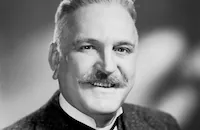
Frank Morgan

Ann Rutherford
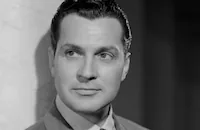
Kent Taylor

Dan Dailey Jr.
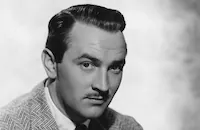
Lee Bowman

Fay Holden

Virginia Grey

Anne Gwynne

Sara Haden
Olaf Hytten

Douglass Dumbrille
Cliff Clark
Hal K. Dawson
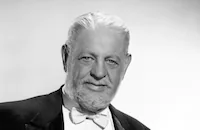
Thurston Hall

Joseph Crehan
Frederick Burton
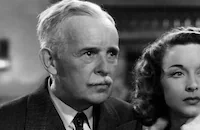
Howard Hickman
Virginia Brissac
Bert Roach
Crew
Earl Brent
Roy Chanslor
Cedric Gibbons
Lottie Horner
Gilbert Kurland
Sammy Lee
Albert Mannheimer
Marion Parsonnet
Stan Rogers
Harold Rosson
Gene Ruggiero
Edgar Selwyn
Douglas Shearer
David Snell
Edwin B. Willis

Film Details
Technical Specs

Articles
Virginia Grey (1917-2004)
She was was born in Los Angeles on March 22, 1917, and was exposed to the film industry at a very young age. Her father, Ray Grey, was a Keystone Cop and acted in several other of Mack Sennett's comedies with the likes of Mabel Normand, Dorothy Gish and Ben Turpin. When her father died when she was still a child, Virginia's mother encouraged her to join the acting game and audition for the role of Eva for Uncle Tom's Cabin, a big budget picture for Universal Studios in the day. She won the role, and acted in a few more pictures at the studio: The Michigan Kid and Heart to Heart (both 1928), before she decided to temporarily leave acting to finish her schooling.
She returned to films after graduating from high school, and after bouncing around Hollywood doing bits for various studios, she hooked up with MGM in 1938. Her roles in her first few films were fairly non-descript: In Test Pilot and Ladies in Distress (both 1938), she did little more than look pretty, but in the following year she had scene-stealing parts in The Women (upstaging Joan Crawford in a delicious scene as a wisecracking perfume counter girl) and as the suffering heroine in Another Thin Man (both 1939).
Despite her versatility (she could handle comedy or drama with equal effectiveness), MGM would cast her in some above-average, but hardly starmaking movies: Whistling in the Dark, The Big Store (both 1941), and Tarzan's New York Adventure (1942). She left MGM in 1943 and became a freelance actress for several studios, but her material as a leading lady throughout the '40s were mediocre: Swamp Fire, House of Horrors (both 1946), and Mexican Hayride (1948) were sadly the more interesting films in her post-MGM period. But by the '50s she was a well-established character actress, appearing in fairly big-budget pictures: All That Heaven Allows, The Rose Tattoo (both 1955), Jeanne Eagels (1957).
In the '60s, Grey turned to television and found work on a variety of hit shows: Wagon Train, Peter Gunn, Bonanza, My Three Sons, I Spy, and several others; plus she also captured a a couple of notable supporting parts in these films: Madame X (1966), and Airport (1970), before retiring completely from acting in the early '70s. She is survived by her sister, Lorraine Grey Heindorf, two nieces and two nephews.
by Michael T. Toole

Virginia Grey (1917-2004)
Quotes
Trivia
Notes
Working titles of this film were Tabloid and She Takes the Wheel. Hollywood Reporter production charts erroneously call assistant director Gilbert Kurland "Bert Spurlin."















